Navigating Legal Recourse: How Condo Associations Can Address Owner Misconduct
Living within a condominium community entails a commitment to shared rules and regulations designed to maintain order and protect property values. However, when owners deviate from these agreed-upon standards, associations face the challenge of enforcing compliance while preserving community harmony. This article delves into effective strategies for managing owner misconduct, emphasizing the importance of a balanced approach.
Understanding the Governing Framework
Condominium associations operate under a set of governing documents, including declarations, bylaws, and rules. These documents function as a contract between the association and the owners, outlining rights, responsibilities, and behavioral expectations. It's imperative for both boards and residents to be well-versed in these provisions to ensure mutual understanding and adherence.
The Spectrum of Enforcement Measures
When addressing violations, associations should consider a graduated approach:
- Informal Resolution: Initiate a conversation with the offending owner to discuss the issue and seek voluntary compliance. This fosters goodwill and often resolves misunderstandings.
- Written Notices: If informal efforts are unsuccessful, issue formal notices detailing the violation and referencing the specific governing document provisions. Clear communication is key.
- Fines and Penalties: Many associations have the authority to levy fines for continued non-compliance. Ensure that any fines are reasonable and in accordance with state laws and the association's governing documents.
- Alternative Dispute Resolution (ADR): Mediation or arbitration can serve as effective tools to resolve disputes without resorting to litigation. ADR is often less adversarial and can preserve community relationships.
- Legal Action: As a last resort, associations may pursue legal action to enforce compliance. This step should be taken only after all other avenues have been exhausted due to the potential costs and community impact.
Case Study: Addressing Persistent Violations
Consider a scenario where an owner consistently disrupts the community by engaging in loud outbursts in common areas and undertaking unauthorized renovations. Despite multiple attempts at resolution, the behavior persists, negatively affecting neighbors' quality of life.
In such cases, the association might:
- Document Incidents: Maintain detailed records of all violations, including dates, times, and descriptions. This documentation is crucial if legal action becomes necessary.
- Engage in Mediation: Offer to participate in mediation to address the owner's grievances and seek a mutually agreeable solution.
- Seek Injunctive Relief: If the behavior continues, the association can file a lawsuit seeking an injunction to compel the owner to comply with the governing documents. This legal tool mandates specific actions or prohibits certain behaviors.
Legal Considerations and Best Practices
Before pursuing legal action, associations should:
- Review Governing Documents: Ensure that the association has the authority to enforce the specific rule in question and that all procedures have been followed correctly.
- Consult Legal Counsel: Engage an attorney experienced in community association law to navigate the complexities of enforcement and litigation.
- Communicate Transparently: Keep the community informed about enforcement actions to maintain trust and demonstrate the association's commitment to upholding community standards.
Balancing Enforcement with Community Well-being
While enforcing rules is essential, associations must balance this with the overall well-being of the community. Heavy-handed enforcement can lead to resentment and division, whereas a more measured approach can foster cooperation and compliance.
Key Strategies Include:
- Consistency: Apply rules uniformly to all owners to prevent perceptions of favoritism.
- Education: Regularly inform residents about the importance of rules and the reasons behind them.
- Engagement: Encourage owner participation in rule-making processes to increase buy-in and understanding.
Insights
What steps can a condo association take when an owner violates community rules?
Associations can start with informal discussions, followed by written notices, fines, mediation, and, as a last resort, legal action to enforce compliance.
How can associations ensure fair enforcement of rules?
By applying rules consistently, maintaining clear communication, and providing avenues for owners to express concerns or appeal decisions.
What are the risks of pursuing legal action against an owner?
Legal action can be costly, time-consuming, and may strain community relations. It's essential to weigh these factors and consider alternative dispute resolution methods first.
How can associations foster a cooperative community environment?
Through consistent rule enforcement, transparent communication, educational initiatives, and encouraging owner involvement in decision-making processes.
When should an association consult legal counsel in enforcement matters?
Legal counsel should be consulted when violations persist despite other efforts, when considering fines or legal action, or when the governing documents are unclear regarding enforcement procedures.
By adopting a thoughtful and systematic approach to rule enforcement, condominium associations can uphold community standards while maintaining a harmonious living environment.













